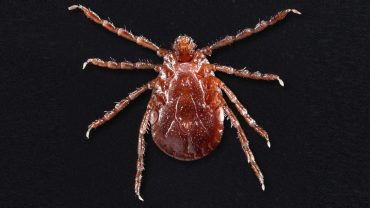

Once thought of as a mild annoyance, the tick has shown itself to be very dangerous to humans and animals in recent decades. A tick “borrowing” some of your blood to live on is the least of your concerns when it comes to these parasites. They carry diseases that can drastically change the life of the infected person. Lyme disease, Rocky Mountain Spotted Fever and a newer disease which causes the victim to basically become unable to eat red meat of any kind, called Alpha-gal syndrome, are among the many.
If all that isn’t enough to worry about with the ticks that we currently have in the U.S., there is a now a new tick that is spreading quickly. The Longhorned Tick or “Asian Tick” has been showing up in increasing numbers since its first known appearance in New Jersey back in 2017. It is native to Central and East Asia, including China, Korea, and Japan, as well as Pacific islands including Australia, New Zealand and Fiji. It has since been identified in New York, Pennsylvania, Maryland, Virginia, West Virginia, North Carolina and Arkansas. It is pretty obvious that Florida is not far behind.
At this point the tick has been mostly spotted on cattle. It can and will latch onto a human host though. And they carry diseases too, such as Lyme and spotted fever group rickettsiae, Ehrlichiosis and Anaplasmosis.
Insect repellents and checking your body often are still the best method to prevent a tick bite. Always make sure to check in crevices of your body as the tick knows that the sooner it can get out of sight the better chance it has of survival.
If you find that you have been bitten by one of these ticks, it is a good idea to contact a medical professional. Side effects from the diseases can last from a few years to an entire lifetime.
